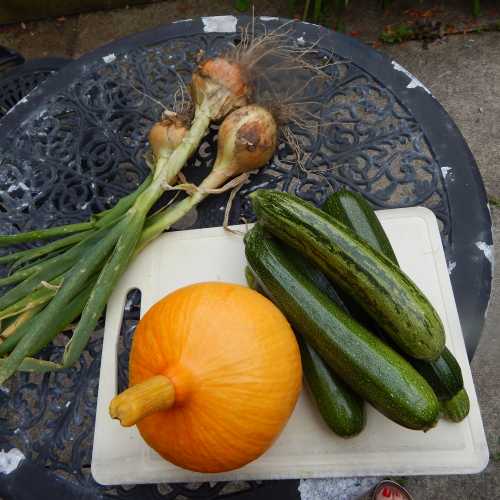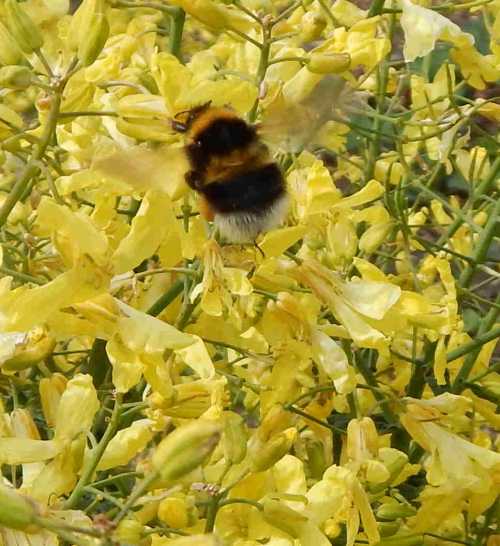The Organic Vegetable Garden - How Growing Your Own Helps The Bees
Do you have even a small space for an organic vegetable garden?
Even
if all you have is a concrete yard or a balcony, you’d be surprised how
many vegetables and fruits can be grown in pots! I know, because my
garden is quite small, and yet last year I grew:
Potatoes
Beans
Corgettes
Tomatoes
Rocket
Strawberries
Carrots
A few cabbages
Miniature pumpkins
Herbs: chives, thyme, rosemary, mint (unfortunately, I ruined my borage!).

All in pots (apart from some of the herbs)! No chemicals were used, other than plant food, and you’ll find there are plenty of organic plant feeds available.
If I had a bit more space, I would create my own plant feed with comfrey leaves and rain water in a water butt, but alas I have to prioritise very carefully. Still, I have plans to rearrange my garden this year, to better maximise the small space I have available.
How can growing your own organic vegetable garden help the bees and the environment?

Much food bought in supermarkets is made from fruit, vegetable and cereal
matter grown using intensive farming practices, which are ultimately
damaging to the environment.
In a report,
” Only sustainable farming will help meet growing food demand, says UN expert”,
United Nations Food and Agriculture Organization Director of Plant Production and Protection Division said:
- “In
the name of intensification in many places around the world, farmers
over-ploughed, over-fertilized, over-irrigated, over-applied
pesticides,” he said. “But in so doing we also affected all aspects of
the soil, water, land, biodiversity and the services provided by an
intact ecosystem. That began to bring yield growth rates down.”
Intensive farming techniques have been detrimental to bees and other wildlife over the years, because:
- Of the amount of pesticides such as
neonicotinoids
and other systemic insecticides, being used on agricultural land.
- The number of herbicides used.
- The reduction in wildflower strips to maximise growing space (although hopefully things are changing with this one).
-
The number of wildflower meadows and grasslands ploughed up to create
‘improved’ grassland that usually consists of just a handful of grasses
of minimal value to biodiversity (some meadows may also have been sold
off for building development).- The expansion of mono-crop fields –
again of limited value to a broad range of wildlife.
- The destruction of hedgerows in order to create larger mono-crop fields.
What do bees need?
Bees need:
- - A variety of flora for food – wildflowers and traditional flowering hedgerows are especially valuable.
- Nesting sites – hedgerows often provide ideal sites – for example, bumblebees may nest in abandoned rodent holes found at the bottom of hedges.
- Pesticide-free environment so that they can forage safely.
By eating food from your own organic vegetable garden:
- You have the opportunity to garden in a way that is not only
beneficial to you, but also to wildlife – after all, we need bees and
other insects to pollinate many of our fruit and vegetable crops.
Here is a list of fruit and vegetables
you could include – feed yourself, and feed the bees! Also, see these tips for creating a
bee garden.
- You can ensure you keep your space free from toxic chemicals.
-
If you cannot afford to buy organic vegetables and fruit from the
supermarket, then by growing your own organic vegetable garden, you will
not only save money, you will withdraw support from intensive farming
practices.
Harvest the leaves in year 1, and continue harvesting in year 2 until the plant produces flowers. The pale yellow, fragrant flowers are loved by all kinds of bees!

